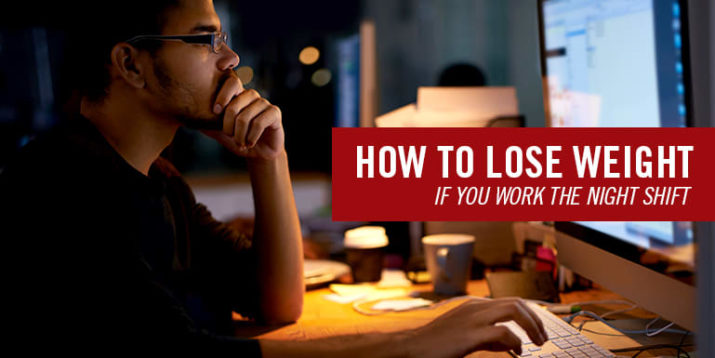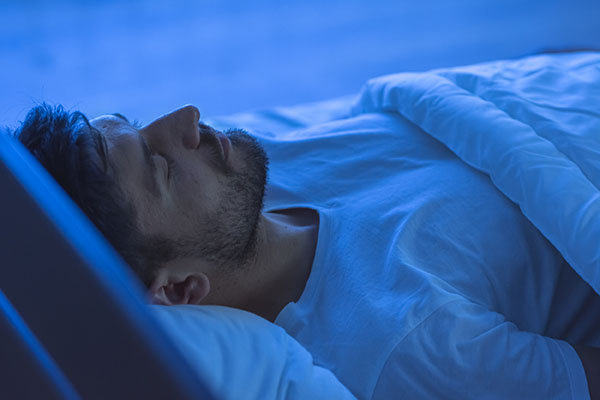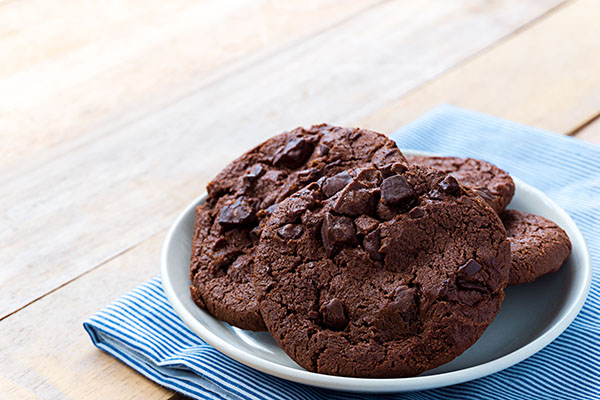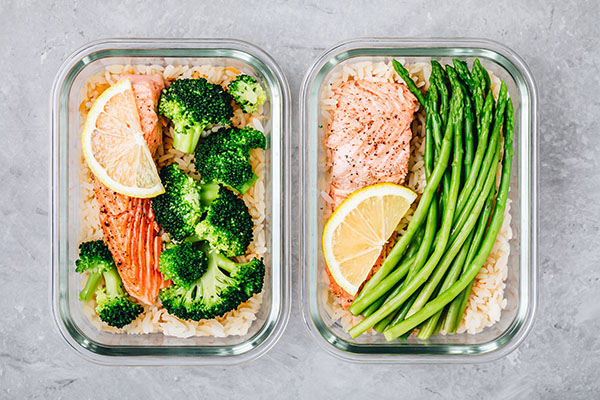How to Lose Weight if You Work the Night Shift

If you’re reading this at 3 a.m., we feel you.
Losing weight is hard enough but tackling this feat can be even more challenging for those who regularly toil from dusk till dawn.
Here are 10 tips specific to your schedule to help you keep the weight off and the ways that the night shift affects your body.
1. Prioritize Sleep

Be honest, are you really getting the recommended 7 to 9 hours each night? If you’re falling short on the shut-eye, put sleep down as a calendar item.
Setting up a good sleep environment can help you get more ZZZs.
Here are few tricks:
- Set your thermostat between 65 and 69 degrees F
- Invest in thick blinds and window covers to minimize pesky light from creeping in
- Keep electronics off your bed and set your phone on silent
- Use earplugs to block out extra noise
2. Pack Nutrient-Dense Snacks

Have a good snack strategy ready to squash late-night cravings.
The selection at 24-hour eateries (think: gas station stops, fast food joints, and vending machines) are rarely healthy. Save some money and empty calories by bringing your own snacks.
You can pre-portion food into plastic containers or resealable bags so it’s easier to keep track of how much you eat.
Choose nutrient-dense snacks such as trail mix, hard-boiled eggs, string cheese, sliced fruit, and yogurt.
Be sure to store any perishable food in the refrigerator at work or pack in a cooler with ice packs to keep it cold (and safe to eat).
3. Don’t Skimp On Exercise

If the choice is between sleep and exercise, go with sleep. However, making exercise a priority is critical for getting closer to your goal weight.
It also has the extra benefit of promoting good sleep. Since the gym (or sun) may not be in your favor, sneak in some indoor workouts.
Invest in some workout DVDs or stream workouts when you have a break or some downtime.
Bonus: Get your co-workers involved for extra motivation.
4. Don’t Abuse Caffeinated Drinks

Caffeine is no sleep replacement, but it’s common to prop ourselves awake with it during the work “day.”
But, as it comes close to the end of your night shift, don’t drink fully caffeinated coffee, tea, and sodas.
Caffeine is a stimulant that persists for hours after your last sip, so it’s crucial not to let it ruin your sleep.
5. Lay Off Sugary Drinks and Snacks

Weight-loss hopefuls should steer clear of sugary foods, and night shift workers have an extra reason.
Soda, candy, cookies, and the like are void of any real nutritional benefit and they lack any satiating power, which typically comes from fiber and protein.
On top of this, a study by the American Academy of Sleep Medicine found that peak blood sugar levels were 16 percent higher and insulin levels were 40 to 50 percent higher when subjects underwent one night of shift work, compared to one day of a regular work schedule.
The study’s sample size is small, however, the findings are insightful.
Elevated insulin and blood sugar levels suggest the body isn’t as equipped to manage foods high in refined carbohydrates and added sugars, and this could lead to type 2 diabetes over time.
6. Set Up a Regular Schedule for Your Meals

Disrupting the circadian clock increases the risk for obesity because it alters metabolism by decreasing resting metabolic rate. But, light isn’t the only factor.
Your circadian rhythm is also affected by meal timing, so set up and stick to a regular eating schedule.
If you’re used to eating three regular meals during the day, then establish the same routine at night.
7. Get Your Vitamin D

One of the major sources of vitamin D isn’t actually a food — it’s the sun — but if you’re sleeping through a greater part of the day, chances are you’re missing out on some of those valuable rays.
This could be working against you and your weight loss goals because research shows getting adequate vitamin D may help you lose weight and decrease overall body fat.
Supplementing your diet, focusing on eating vitamin D-rich foods, and getting enough sun can help you meet your vitamin D needs.
8. Prep Your Meals

Eating on-the-go, especially during those late-night hours means you’re probably relying on drive-thru and vending machines eats.
Unfortunately, these food options are limited, likely leaving you with a selection of ultra-processed foods, i.e. refined grains, high-fat meats, salty snacks, and sugary treats.
Research shows that eating ultra-processed foods may cause people to overeat and ultimately, gain more weight.
Instead, plan and prep your meals at home and focus on eating whole, minimally processed foods.
9. Avoid Alcohol Before Bed

While it may seem like unwinding from the night with a drink or two might help you get some solid sleep, the opposite is true.
Drinking before bed may help you fall asleep but your quality of sleep will suffer.
On top of that, alcohol can thwart weight loss, depending on how much you’re drinking and your beverage of choice.
Excessive drinking can hinder our ability to make healthy food choices and high-calorie, sugary drinks can lead to weight gain.
10. Monitor Your Intake
![]()
When it comes to managing weight, third-shift workers are at a disadvantage right out of the gate.
A small study found that those working the night shift burn fewer calories, about 50 calories less per day, compared to those working during normal business hours and getting their ZZZs at night.
Paying attention to how much you’re eating — like monitoring your portions or keeping track of calories — can be a helpful tool if you find you’re gaining weight while working nights.
Why Shift Work Can Affect Your Health and Waistline

Our cities and towns operate around the clock. To make all this possible, roughly 15 million Americans perform shift work outside of regular hours.
Doing so defies human biology — we are internally wired to be active during the day and asleep at night.
This wiring occurs through an internal clock that produces circadian rhythms, which regulates our body temp, hunger, energy levels, and mood.
This circadian pattern is affected by light, which is why it’s harder for us to fall asleep when the sun is out.
Night shift workers are more likely to suffer from sleep deprivation, snoozing on average 2 to 4 hours less than normal.
Your health unravels as your sleep takes a hit. Common signs of inadequate sleep include irritability, fatigue, stress, poor learning, and concentration issues.
All these signs can leave you feeling zonked out and in poor health.
On top of this is the mounting evidence of a sleep-weight connection.
Losing shut-eye may mess with your sense of appetite, causing you to eat more.
A recent review paper looked at more than 40 studies and found that sleep deprivation led to a greater sense of hunger and overall calorie intake — about 250 calories more each day — compared to those who got enough shut-eye.
A Mayo Clinic study looking at 17 healthy, young adults also found that sleep-deprived subjects slept one hour and 20 minutes less than the control subjects but ate an average of 500+ more calories per day.
